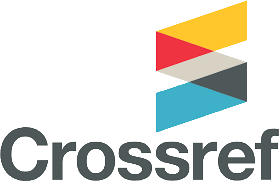Analysis of Machine Learning Techniques for Agriculture Crop Predicting System
Abstract
Agriculture is our country's predominant source of revenue and the cornerstone of our prosperity. Landowners should be equipped with crop monitoring to cooperate with current predicaments such as waterlogging, unrestrained expenditures attributable to requirement discrepancies, and weather volatility. Crop production yields attributable to unpredictable environmental variations, inadequate sanitation capabilities, soil moisture degradation, and conventional farming perspectives are all tackled. In agriculture, one such digitalization used to determine crop productivity is reinforcement learning. To anticipate crop production, diverse reinforcement learning algorithms such as prognostication, segmentation, validation, and aggregations are used. Some of the mechanisms was using to incorporate prognostication comprise convolution neural networks, multilayer preceptor, sequential and regression, prediction trees, and Cloister Bayes. The researchers, on the other hand, confront a hurdle in selecting the suitable methodology from the set of accessible methods for crops they have specified. The main aim of this research is to investigate how optimization algorithms can be used to anticipate crop production. In the framework of massive data processing, a method for forecasting crop production using classification techniques has been presented.


